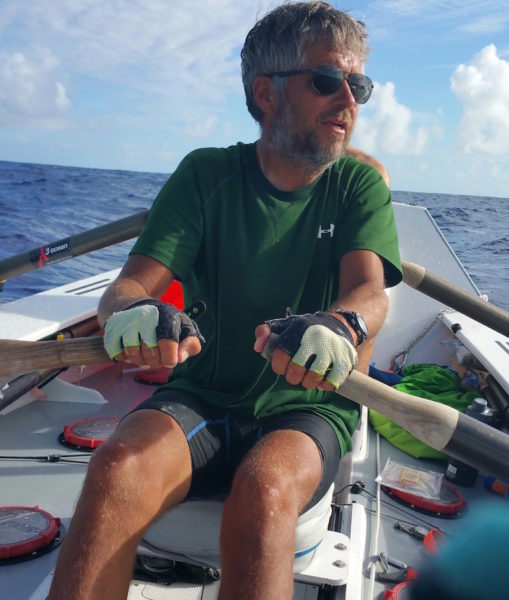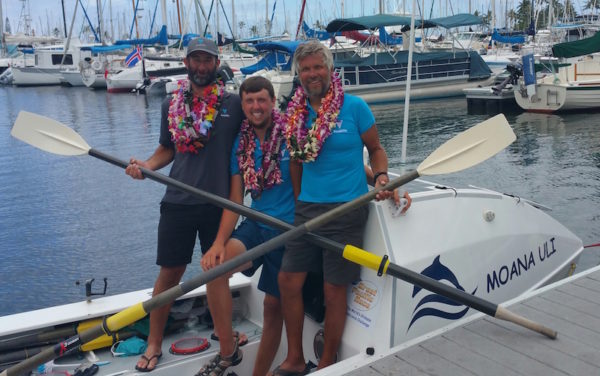Touchstone gyms are lucky enough to count some of the most fascinating and badass people amongst our community. One such person is Greg Vlasek, a longtime member and multi-sport master. Jason of Sacramento Pipeworks caught up with Greg to ask him about his most recent accomplishment as a participant in this year’s Great Pacific Race, a grueling trans-Pacific rowing endurance race from California to Hawaii. Read on to hear about Greg’s experiences out at sea, his training regimen, and why Pipeworks might consider getting a mechanical bull.
Back in June, you took part in the historic Great Pacific Race 2016 from Monterey, CA to Waikiki, HI. Starting on June 4th and ending on July 22nd, your team Moana Uli finished the race with a 3rd place finish and 2,326.4 nautical miles rowed with no motor. How do you feel with the overall performance?
I’m generally pleased with the outcome, both as a team and my individual performance. We have to appreciate that this is a totally unique race, and there’s a great deal about the outcome over which the entrants have no control. It is grueling and humbling; it forces the psyche as well as the body beyond all reasonable limits. There were weather and sea conditions that affected each individual and each team differently. It was every bit the challenge I hoped it would be and more.
You have been quoted as saying, “It’s a great way to get to Hawaii.” Do you feel that you will “get to Hawaii” by rowing again?
Everyone can relate to doing something really exhilarating for the first time and feeling somewhat intimidated and apprehensive, not because we’re afraid or unconfident, but because we’re inexperienced. That’s how I entered this endurance row, completely confident but a little apprehensive about my adaptation to life on the sea in a 24-foot rowboat. Now that I’ve succeeded, I know which skills are essential and which are not. I can and would do another row given the financial opportunity to do so. I might not repeat the same route, but I can’t think of a better destination than Hawaii.

What would you say, hands down, was the most enjoyable part of the experience?
Experiencing the constant changes in nature—including in my own physical being—was truly astonishing, and also bewildering in the best possible sense of the word. It is really difficult to describe. The fatigue of rowing 12 to 15 hours a day and sleeping less than two hours at a time created a certain rawness and immediacy in perceiving natural changes. Nature is powerful and unpredictable. It’s indifferent to life. Nature would just as soon kill you as provide you a nurturing place to exist. 48 days in a rowboat hundreds of miles from land demonstrates the raw power of that reality quite nicely. At the same time, the intensity of nature can be unbelievable beautiful. The night skies, the colors of sunset on the water, the playfulness of porpoises and mahi-mahi, the driving, cleansing rains, the wild dreams and hallucinations, the deep, deep blue of the sea; these things made me cry and sing and thank God for the sheer joy of being alive.
On race day 10, Team Moana Uli lost team member Tina Neill-Sanderson to an injury sustained by a rogue wave. If she had been able to finish, do you feel that your team could have had a shot at coming in first place?
Although it’s surprising to say it even now, we absolutely had a shot. We were in first place in terms of strategic position at the time Tina was injured; I think it was eight days in. She was knocked out of her seat and slammed her shoulder on the deck. We had the most experienced skipper. We had a superior weather router advising us on tactics. We had the same competitive burn that the team of 30-something guys who eventually won the race had, as well as a better and more supportive team rapport, I think. We’d have given them a hell of a run for their money, in any case.
Is Tina feeling better since returning home?
Thankfully with physical therapy and acupuncture she’s made a full recovery in just a few months; she recently paddled in a couple of canoe races on Maui as a matter of fact. I’m really happy for her. We’re going to be neighbors some day on the Big Island.
By race day 13, Tim Spiteri (AUS), Brian Conville (IRL) and yourself (USA) signed off a text message to Race Headquarters from “Larry, Curly and Mo,” challenging them to figure out who was who. Who owned each nickname, and who was deemed the leader?
(Laughs.) OK, well…we need some context for this. First of all, Tim was the skipper, and he did most of the talking for the crew throughout the voyage. And Tim is quite a storyteller, so he was obviously Moe, the itinerant leader and authoritarian of the trio. Brian shared the aft cabin with Tim, so he also had ready access to the sat phone when Tim was otherwise occupied. Brian was as close as we had to a lovable, unpredictable nutcase, so he was tagged as Curly. Being in the fore cabin, I had very little to do with the banter between the team and Race Control. Also, I had the sole American accent, so I must’ve been a bit hard for the Brits, Aussies, and Irish involved in these conversations to understand. I was the well-meaning, marginally-rational and ultimately bumbling Larry.

You had many weather obstacles throughout the course dealt by Mother Nature. What would you say was the most difficult to deal with, and how did you manage to overcome?
The toughest environment without a doubt was the first week getting away from the mainland coast. It was grey and cold the entire week, with zero sun, moon or stars that I can remember. The sea was not particularly big but it was very rough, with waves crashing into the cockpit from every direction (including the one that took Tina out). I remember thinking that training by riding a mechanical bull would’ve been equally valuable as the 600-plus hours I spent rowing. We were pretty cold and wet those days. Were it not for the fact we were excited about the start and finding ourselves at the front of the pack, it could’ve been rather depressing, I think.
Different challenges faced your now 3-man group, including losing all of your music except Christmas music, and encountering “Gary the Gull.” Do you think that Gary was just sticking around to hear the sweet sounds of Christmas?
(Laughs.) Here again, we have stories filtered through Tim that we need to take with many grains of sea salt. We never actually lost all of our music. Brian’s iPod went on the blink for a few days and that seemed to be where most of the mutually agreeable music was stored. So, we defaulted to Tim’s somewhat-eccentric collection of pop, show tunes, and Christmas music for a bit. The boat’s sound system was crap anyway and not set up for Android, so I did my listening on a headset. I also sang while rowing as my contribution to on-deck entertainment.
As for “Gary the Gull,” he was definitely not a gull…too big and gnarly-looking. And he was not sticking around for music. He was enjoying a rest from his trans-Pacific flight, and the flying fish I was feeding him on the sly. He spent the better part of a stormy night on our aft cabin. Brian and Tim didn’t care for him and kept shooing him off, but he’d circle around and land again. He did this at least a dozen times, once landing on Tim’s head. It was very cool actually, watching this clumsy bird touch down on a rocking, slippery deck in pretty high winds. He was tenacious.
Before you left for the race, the main hesitation was leaving your son and daughter for the two-month period that you would be away. Did they cheer you on, and were you able to speak with them from the boat?
We had lots of issues with the communication systems on the boat. I spoke to my daughter once, and we texted a few times. She was my biggest fan and follower. We spent a few days together on Oahu, since she was on her way to Australia for a working vacation. I had no contact with my son at all until I set foot on Oahu. But, he’s sixteen and it’s summer; I’m not entirely sure he noticed I was gone, actually.
Did all of the physical training beforehand at Pipeworks come in handy? In hindsight, what would you have done differently to prepare for the race?
I’d say I did the right amount of training at the right time, including a lot of hours weight training at Pipeworks and other gyms, hundreds of hours of rowing, and lots of cycling and paddling. I know a mechanical bull is not considered exercise equipment, but I do highly recommend it for ocean rowers if you can find one. Seriously. Try to do an hour on a mechanical bull every day for a week or two, preferably one with oars on it.
What is the most important firsthand advice that you would give future competitors for the race in 2018?
Take the challenge seriously. You are competing against a mighty ocean and your own limitations to join an extremely small club of international adventurers. Learn everything you can about proper preparation and do it thoroughly. You cannot possibly be prepared for everything the Pacific will throw at you, but the more you’ve prepared for, the less stressed you’ll be when things get rough. Make sure your crew, your electrical systems, communications, and cameras are as bombproof as you can make them. Those are things you have no choice but to depend on for both survival and enjoyment.
Interview by Jason Bove.

